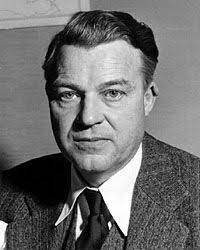Myrdal, Gunnar

Bio: (1898-1987) Swedish economist and sociologist. Gunnar Myrdal earned his Ph.D. in economics from Stockholm University, where he later taught economics from 1933 to 1950 and again from 1960 until 1967. After the end of World War II, he was the Minister of Trade of Sweden (1945-1947) and the Secretary of the United Nations Economic Commission for Europe (1947-1957). Myrdal is, above all, known as an economist and is one of the main representatives of the Stockholm School of Economic Thought. Myrdal advocated economic ideas very similar to those of John Maynard Keynes but formulated them before and independently of Keynes. Myrdal, both as an economist and as a politician (he was a member of the Swedish Social Democratic Party for many years), advocated the position that the state should intervene in the economy. He received the Nobel Memorial Prize in Economic Sciences in 1974, for his contributions to the economy. Myrdal has also significantly contributed to the development of sociology. Together with his wife Alva Myrdal, he wrote the book Crisis in the Population Question (1934), in which the authors present arguments for social reform that would improve the position of families and women.
In 1937, Gunnar Myrdal received large sums of money and resources from the Carnegie Endowment for International Peace to investigate racial relations in the United States. He collaborated with several researchers in the preparation of this study, and the study itself combined the collection of a large number of quantitative data, which were related to economic and social indicators, with qualitative data collected in the field. In the end, twenty thousand pages of data were collected, and the results of the study are presented in the large two-volume book An American Dilemma (1944). According to Myrdal, the American dilemma represents the conflict between the "American faith" in equality and freedom and the enormous prejudice and discrimination that the African-American population faces daily and in all areas of life. The book provides detailed evidence of discrimination and its consequences. In addition to the racist attitudes of many members of the majority population of European descent, the causes of racial inequality lie in political, legal, and economic institutions that, at every turn, limit the constitutionally guaranteed rights of African Americans. Myrdal also states that scientists who study society must pay attention to ideology and values and that they should always clearly define their values because ideology and values have a huge impact on the scientific research process.
Myrdal, based on his economic and sociological theories, wrote two books: Rich Lands and Poor (1957) and Asian Drama: An Inquiry into the Poverty of Nations (1968), to answer the question of why some countries remain poor while others become rich. To answer this question, he formulated his theory that he named „institutional economics“. Myrdal believes that state-level economic and social planning, public investment in agriculture, social and educational reforms, as well as democratic participation, will enable poor countries to break the vicious circle of poverty and break the alliance between national elites and foreign capital that is keeping them down.
Fields of research
Democracy Demography Discrimination Economy Egalitarianism Elites Everyday Life Freedom Ideology Inequality, Social Institution and Organization Market Morality Poverty Prejudice Race Segregation Social Policy State UnderclassTheoretical approaches
Institutional Approach (Economics)Main works
Prisbildningsproblemet och föränderligheten (1927);
Vetenskap och politik i nationalekonomien (1930);
Kris i befolkningsfrågan (1934);
Monetary Equilibrium (1939);
An American Dilemma: The Negro Problem and Modern Democracy (1944);
The Political Element in the Development of Economic Theory (1953);
Rich Lands and Poor (1957);
Challenge to Affluence (1963);
Asian Drama: An Inquiry into the Poverty of Nations (1968);
Objectivity in Social Research (1969);
The Challenge of World Poverty: A World Anti-Poverty Program in Outline. (1970);
Against the Stream: Critical Essays on Economics (1973);
Hur styrs landet? (1982);
Historien om An American Dilemma (1987).

